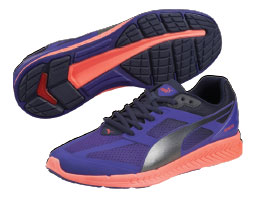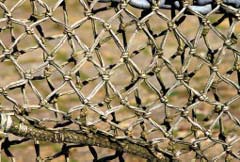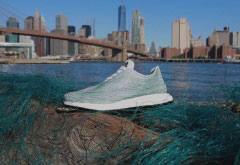Recycled plastics kick off in footwear
Also, download this story from the electronic issue here
Regarded as an environmental nuisance, waste plastics are now being recycled to bring added value in materials to many top footwear brands, according to Angelica Buan in this article.
Downcycling footwear
The environmental impact of footwear design is akin to the growing concern for degradability and compostability of materials. Leather, commonly picked for shoe material, takes an average of 25 to 40 years to decompose. And unless recycled, leather footwear would just add on to the heaps of landfill wastes, notwithstanding the fact that the chemicals used in the tanning process and in assembling the footwear could leach into the environment.
Meanwhile, taking apart the other components in regular footwear, such as the foam padding, fabrics, metals and other materials, which also present varying duration of decomposing, is a challenge, especially for recycling. Hence, footwear is often downcycled, rather than recycled.
Downcycling is the process of converting old or useless items into new ones that are of lesser quality and functionality.
Summing up these challenges, Netherlandsheadquartered sustainability metrics consultancy, Pre, noted in its Waste Disposition Life Cycle Assessment report that global footwear and apparel manufacturers are determining the best end-of-life disposal options for the main waste materials; to validate and potentially refine their existing company philosophies regarding waste disposal.
Supplementing materials
Sustainability, more than a green by-word, is an approach to augment reserves for virgin materials. With the current technologies now being employed for recycling, waste plastics are also now used in personal goods like apparel and footwear.
Several footwear brands have embraced the usability of waste plastic materials, incorporating that into their product lines. One of these is global brand Timberland, a US manufacturer and retailer of outdoors wear like footwear, apparel and accessories.
According to Timberland, it utilised some 128 million of used PET bottles into creating its footwear line, from linings, laces, uppers and insulation to faux shearling and even the backing of faux fur.
Recycled PET content is a highlight in Timberland’s Earthkeepers Collection that it introduced in 2007. The company states that guidelines have been developed to ensure cost-effectiveness, and that materials (textile, leather, foam, or plastics) that go into the products meet certain criteria. It has developed its own material fabric made from 100% recycled PET, ReCanvas, which has the look and feel of cotton canvas.
Moreover, as part of the firm’s corporate social responsibility for the environment, it launched a sustainability online campaign in 2008. Known as the Earthkeeper Network, its target is to recruit 1 million people who would engage in environmental awareness and action, as well as knowledge sharing.
Co-branding for sustainability
Top active sports shoe brands such as Nike, Puma, and New Balance are also incorporating recycled plastics into their product lines, and in some of their product offerings. These shoe manufacturers are partnering with other major companies for either materials or technology.
Massachusetts-based manufacturer Nike has a track record of utilising recycled plastics and renewable materials in developing its new shoe designs.
In 2012, Nike launched the GS sneakers, made of castor beans and recycled PET bottles, during the London Summer Olympics. The football cleat, weighing light at 160 g, has its laces, lining, and tongue of the shoes made from a minimum of 70% reused plastics from recycled PET bottles, while the traction-plate on the shoes is made from 50% Pebax Renew, a renewable material consisting 97% castor beans and 50% recycled thermoplastic polyurethane (TPU) from French firm Arkema.
Among its more recent offerings is the latest kit designed for the 2015 US Women’s National Team for the FIFA Women’s World Cup. Each piece of the kit, consisting of a jersey, shorts and socks, is made from yarn using an average of 18 recycled PET bottles.
Nike, ranked the 13th most admired company by Fortune, says that it has recycled polyester from over 2 billion waste plastic bottles since 2010. Nike says it is also able to reduce energy consumption in the manufacturing process by as much as 30% by using the regrind PET polyester compared with using virgin polyester.
German sportswear giant Puma’s InCycle collection, launched in 2013, is the brand's "Cradle to Cradle Certified Basic" first closed-loop range of footwear, apparel and accessories. These are biodegradable or recyclable, meaning that they include organic fibres without toxic chemicals, and have to follow certain international standards for composting.

The firm has also worked with German chemicals maker BASF, utilising i ts Elastopan and Celasto PU foams for the sole of the Ignite running shoes. The footwear maker said that it had used about 50% post-industrial recycled TPU in the outsole of over 500,000 of its football cleats, as of last year.
Meanwhile, Puma collaborated with fashion retailer H&M in a cloth recycling project with UK-based Worn Again, a textile recycling firm that uses a chemical textileto- textile recycling technology, which enables reprocessing of end-of-use clothes and textiles into new yarn, textiles and clothes.
In yet another shoe project, Massachusetts-based New Balance’s newSKY shoes, launched in 2011, was the result of its team-up with Coca-Cola’s bottled water brand Dasani, which is packed in PlantBottle. The packaging is the firstever 100% recyclable plastic beverage bottle containing as much as 30% plant-based materials.
In New Balance’s newSKY shoes, the upper material is made of 95% post-consumer recycled PET bottles, which is then adhered to the outsole with water-based glue. A pair of newSKY uses approximately eight 20-oz recycled PET bottles.

Shoes from the ocean
Bavaria-headquartered Adidas, which designs and manufactures sports shoes, clothing and accessories, recently showcased at the "Oceans. Climate. Life" event, at the United Nations headquarters in New York, its latest sneaker prototype made from fishing nets scoured from the oceans by Sea Shepherd Conservation Society. The latter, a US-based non-profit, marine conservation organisation,
during its 110-day expedition, hunted for illegal poaching vessels off the coast of West Africa, as an official partner of Parley for the Oceans’s Vortex Project marine cleanup initiative. New York-based Parley for the Oceans was created in 2013 to address major threats towards oceans.
In an interview with PRA, Silvia Raccagni, Senior Manager Sustainability Communication at Adidas, provided additional insights on the partnership with Parley for the Oceans and its network of organisations, as an initiative that encourages creative repurposing of ocean waste, and to raise awareness of the growing environmental issue.
“For us, this partnership is an example of the Adidas group's open-source innovation approach that engages with partners, crowd-sources ideas and co-creates the future of the industry. In fact this collaboration – among many others - will accelerate the creation of innovative products and the integration of materials made from ocean plastic waste into the product offer of the Adidas brand. Starting with limited collections to raise awareness, the intention is to gradually move inline, to fully integrate materials made of marine plastics into our regular ranges and to really push the needle. So while we contribute to an environmental cause, we are also contributing to a better future for our industry,” she explains.
The prototypes that were showcased in New York are concept shoes. “There are only two pairs in existence and currently, we are looking into developing a consumer-ready range for the start of next year,” she said.
The upper material of the prototype is fabricated from yarns and filaments produced from ocean plastic debris and retrieved fishing nets. The sourced waste plastics are spun into high performance eco-yarn by US firm Bionic Yarn (it has also supplied to other companies including Timberland).

The Adidas x Parley shoe is designed by British designer Alexander Taylor, who also previously designed limited edition trainers for the company.
According to Raccagni, this is just one of the breakthroughs Adidas is bringing forth to push forward its sustainability plans. It has also announced its decision to phase out plastic bags in all its retail stores, putting its best foot forward!
(PRA)Copyright (c) 2015 www.plasticsandrubberasia.com. All rights reserved.









































